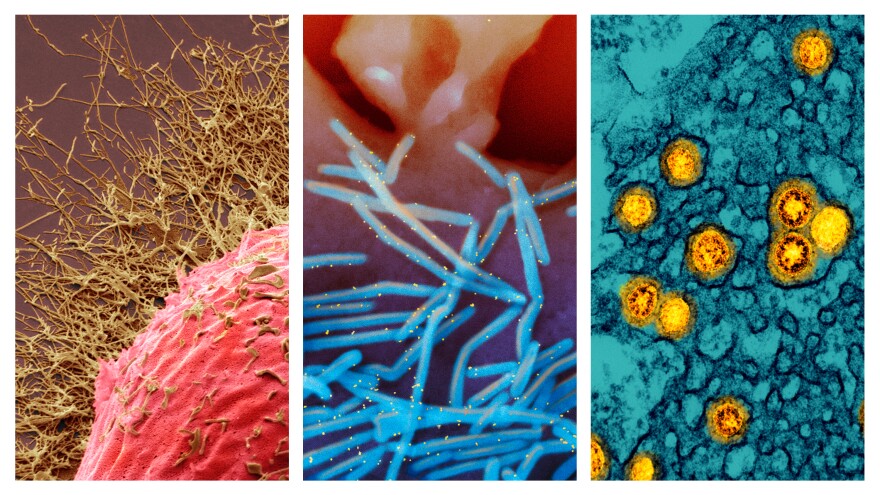Just as parents prepare for back to school, the Ohio Department of Health said everyone should prepare for the upcoming virus season.
Ohio is currently seeing a modest rise in Covid-19 cases, while numbers are still very low compared to this time last year, ODH director Dr. Bruce Vanderhoff said during a news conference Thursday.
However, he advised people to prepare for the fall and winter, which will undoubtedly include COVID-19, influenza and RSV again. Last year’s tripledemic stretched resources in Northeast Ohio hospitals.
“The best way for us to protect ourselves from these three respiratory viruses is to keep up to date with the appropriate vaccinations,” said Vanderhoff.
He recommended the updated bivalent COVID-19 vaccine for those who are over the age of 60 or immunocompromised.
Doctors said they expect the new RSV vaccine approved last month by the FDA, which he said would be available this fall, to help prevent illness.
Respiratory syncytial virus, commonly called RSV, is a common childhood illness that can become serious in infants. Last year’s RSV season was the worst one in years, as the number of cases jumped to five times the state’s average, Vanderhoff said.
The RSV vaccine could be a “real game-changer” in that it will likely mean fewer babies get seriously ill from the common childhood infection, said Akron Children’s Hospitals’ Dr. Michael Forbes.
“It reduces the chances or the risk of a medically-attended RSV-related encounter by about 70% overall and reduces hospitalization by almost 75%,” he said.
For this year, the CDC recommends babies younger than eight months and those younger than two years if they have underlying health conditions should get the vaccine.
Vanderhoff said the vaccine will be free of charge for families who don’t have insurance or whose insurance doesn’t cover vaccines.



